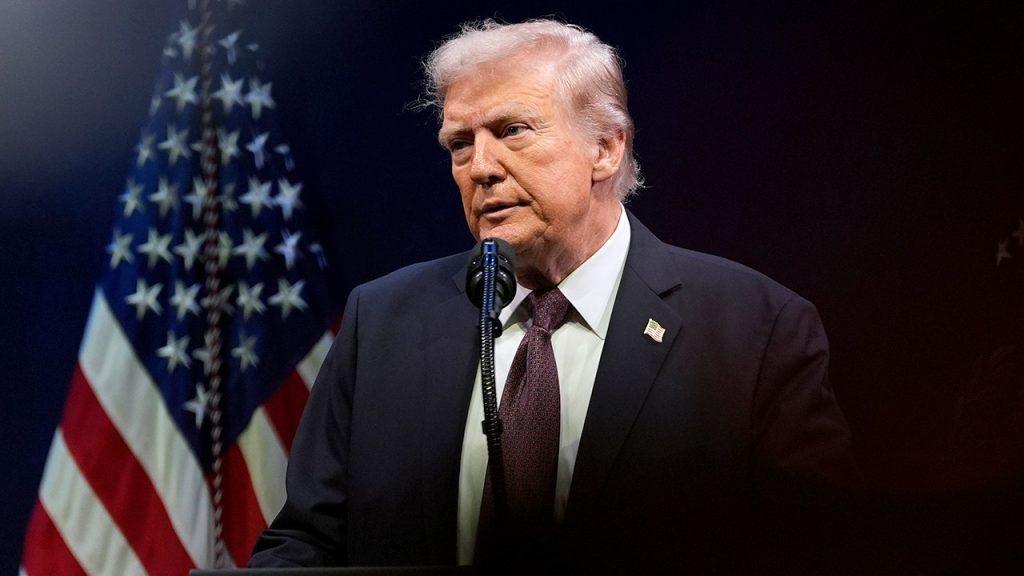Trump’s Strategic Approach to Russia-Ukraine Peace Negotiations
In a significant development in international diplomacy, President Donald Trump has announced he will not meet with Russian President Vladimir Putin or Ukrainian President Volodymyr Zelenskyy until a Russia-Ukraine peace agreement is either finalized or in its concluding stages. Sharing this decision on Truth Social, Trump highlighted what he described as “tremendous progress” over the past week, calling it the most substantial movement toward ending the conflict since its beginning. This cautious approach reflects Trump’s desire to engage only when concrete results are within reach, rather than participating in preliminary discussions that might yield little tangible progress. “I look forward to hopefully meeting with President Zelenskyy and President Putin soon, but ONLY when the deal to end this War is FINAL or, in its final stages,” Trump stated, emphasizing his commitment to meaningful diplomatic engagement rather than symbolic gestures.
The peace framework being negotiated has evolved significantly from its initial 28-point structure, with Trump revealing that his team has been actively refining the proposal with input from both Russian and Ukrainian representatives. To advance these negotiations, Trump has deployed a specialized diplomatic team, directing his Special Envoy Steve Witkoff to meet with President Putin in Moscow while Secretary of the Army Dan Driscoll engages with Ukrainian officials. This two-pronged approach allows simultaneous communication with both sides of the conflict. Trump noted that he would receive comprehensive briefings on all progress, alongside key administration officials including Vice President JD Vance, Secretary of State Marco Rubio, Secretary of War Pete Hegseth, and White House Chief of Staff Susie Wiles—indicating a coordinated, whole-of-government effort to bring this diplomatic initiative to fruition.
The revised peace framework has reportedly gained preliminary acceptance from Kyiv and Washington, with Moscow currently reviewing the latest revisions. According to a U.S. official speaking to Fox News Digital, Ukraine has agreed to a peace deal that would end the war with Russia, though some minor details still require resolution. This represents a potentially historic breakthrough in a conflict that has claimed thousands of lives, including 25,000 soldiers in the last month alone, according to Trump’s statement. Despite this diplomatic momentum, the situation on the ground remains volatile, as evidenced by Russia’s recent large drone-and-missile strike on Kyiv that killed at least seven people and damaged critical power infrastructure. This stark contrast between peace talks and continuing violence underscores the complex reality of the conflict and the challenges facing negotiators.
U.S. diplomats have characterized the current negotiations as the “closest they have been” to a potential agreement since the war’s commencement, suggesting a cautious optimism about the prospects for resolution. Trump’s statement that the war “would have NEVER started if I were President” reflects his belief that his administration’s approach to international relations could have prevented the conflict altogether. This assertion, while impossible to verify, forms part of the narrative framing his current peace efforts as a correction to what he views as previous policy failures. The detailed engagement of Trump’s team in crafting and refining the peace plan indicates a substantial investment of diplomatic resources in bringing the conflict to a conclusion, with Trump positioning himself as a potential dealmaker capable of ending one of the most significant European conflicts in recent decades.
Meanwhile, on the European front, French President Emmanuel Macron has announced that France and its EU partners are close to finalizing their own plan to support Ukraine and secure a peace that is “serious” and grounded in international law. Following a virtual meeting of the Coalition of the Willing, Macron emphasized that all participating countries desire peace, but specifically “a peace that is just and lasting.” The French President outlined several priorities, including increased sanctions on Russia to compel it to negotiate, finalizing an EU solution for frozen Russian assets, and establishing long-term security guarantees to ensure any ceasefire remains enforceable and durable. Macron’s statement that “on the ground, the reality is the exact opposite of any genuine desire for peace” highlights European concerns about Russia’s true intentions, suggesting skepticism about Moscow’s commitment to a negotiated settlement.
The convergence of American and European diplomatic efforts represents a potentially significant moment in the quest to end the Russia-Ukraine conflict. While Trump’s team pursues direct negotiations with both Moscow and Kyiv, European leaders are focusing on creating economic pressure and security frameworks that could support a lasting peace. Macron’s assertion that “we are coordinating closely with the United States to move forward on a framework that could be acceptable” suggests some level of transatlantic cooperation, though reports have indicated that some European leaders remain wary of the U.S. approach to peace talks. As negotiations continue, the coming days and weeks will likely prove crucial in determining whether these diplomatic initiatives can overcome the profound challenges and deep mistrust that have characterized the Russia-Ukraine conflict. Both Trump and European leaders have stressed the urgency of achieving peace, with Macron concluding that finalized security guarantees are “essential for Ukraine, essential for negotiating a credible peace, and also essential to maintain pressure on Russia.”


